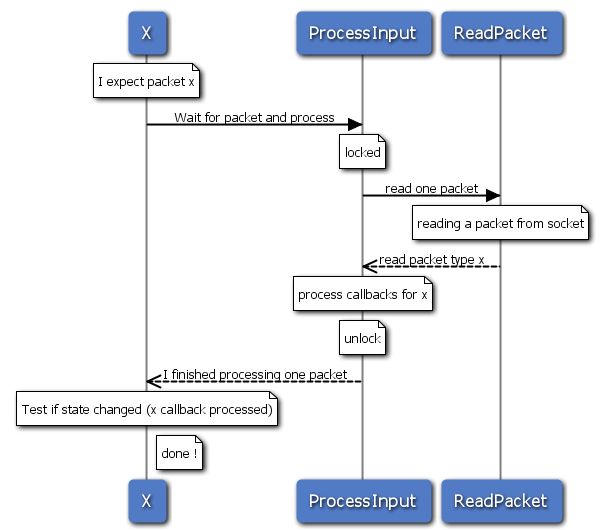When designing the new libssh architecture, we decided to make it completely callback-based, even internally. This provide cool features, like the possibility to extend libssh without recompiling it, or executing more easily asynchronous or nonblocking functions. Libssh 0.5 will run as a state machine, which listen for packets, and then calls callbacks from the packet type. The handlers will evaluate the current state of the session and what to do with packets. Sometimes, the state of the session itself changes as the result of a packet (e.g. when receiving a SSH_AUTH_SUCCESS packet).
A sequence diagram of a synchronous function such as authentication or simple channel read can be systematized as following:
What’s happening is pretty straightforward. The thread X is waiting for a specific packet x (or more precisely, the internal state change caused by packet x). It calls a function called ProcessInput (this is a simplification) which itself locks itself and tries to read packets from the socket. After a packet has been read, the callback for the packet (in this case, x) is called, which updates the internal state of the session.
ProcessInput returns after reading one packet. X verifies that the state changes to x, otherwise, it simply tries a ProcessInput again (not on the drawing) until it receives a state change it can process. Continue reading “Threading design pattern ?”


